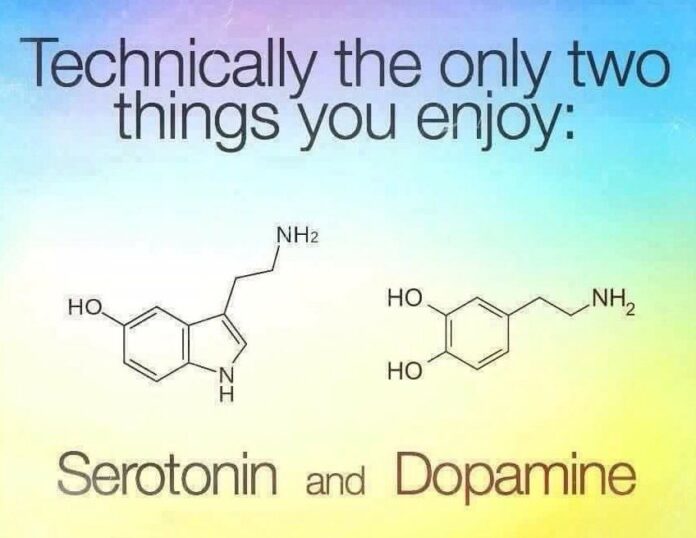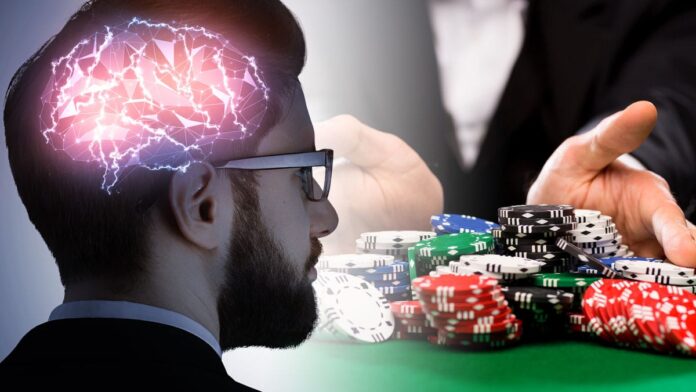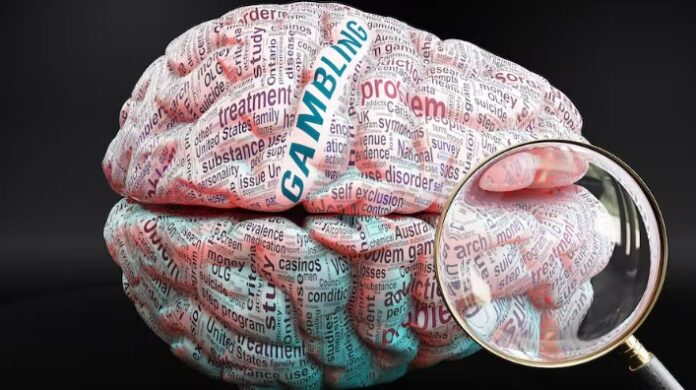Gambling is a popular pastime for many people, but it can also lead to addiction. The pure excitement and joy you feel when winning can be enough to make you want to play some more. But that doesn’t mean you are weak or prone to addiction – there is a physiological explanation!
What are dopamine and serotonin?

Dopamine and serotonin are two of the most important neurotransmitters in the brain. They are involved in many different functions, including mood, sleep, appetite, and learning.
Dopamine is often referred to as the “reward” neurotransmitter because it is released in response to pleasurable activities like eating, sex, and drugs. This release of dopamine in the brain reinforces these behaviors by making them feel more enjoyable.
Serotonin, on the other hand, is often referred to as the “calming” neurotransmitter because it helps to regulate mood and anxiety. A deficiency in serotonin has been linked to depression and anxiety disorders.
How do dopamine and serotonin affect behavior?

Studies have found that gambling activates the dopamine system in the brain, which can lead to a feeling of euphoria. This dopamine rush is what can make this activity so addictive, so it’s no wonder you feel good when playing casino pokies online.
Serotonin, on the other hand, has been linked to impulsivity and risk-taking behavior. This means that gambling may increase serotonin levels in the brain, which can lead to impulsive decisions and a desire for more risky bets.
So, how do these two neurotransmitters affect your behavior? Dopamine is associated with the pleasurable aspects of gambling, while serotonin is associated with the impulsive and risky aspects. This combination can make it a very dangerous activity for some people.
What other factors influence gambling behavior?
It’s not just dopamine and serotonin that influence behavior. Other factors such as stress, environment, and social influences can also play a role. For some people, gambling provides a way to cope with stress or escape from negative emotions. Others may gamble because they’re around other people who are doing it, or because they’re in a place where gambling is accessible and convenient.
The impact of gambling on mental health

It can have a number of negative impacts on mental health, including anxiety, depression, and even suicide. While it may initially provide a sense of excitement and euphoria, it can quickly become a destructive addiction that takes over one’s life. Compulsive gamblers often neglect their work, family, and personal well-being in pursuit of their addiction, leading to financial ruin, relationship problems, and isolation.
Those who suffer from this kind of addiction often experience symptoms of anxiety and depression. They may also turn to substance abuse in an attempt to cope with their feelings of despair and desperation. If you or someone you know is struggling with this problem, it’s important to seek professional help as soon as possible. With treatment, it’s possible to overcome an addiction and regain control of your life.
Biological Factors That Influence Gambling Behavior

There are a number of biological factors that can influence gambling behavior. For example, some research suggests that people with certain genetic markers may be more likely to develop problems. Additionally, brain chemistry can play a role in gambling behavior – people with higher levels of dopamine may be more prone to taking risks, which can lead to excessive wagering. Finally, underlying medical conditions such as mental illness or substance abuse can also increase the likelihood of problematic gambling.
Psychological Factors
It is well-known that psychological factors can influence behavior. For example, a person’s mood can affect whether they gamble and how much they gamble. If a person is feeling stressed or down, they may be more likely to gamble as a way of coping or escapism. On the other hand, if a person is feeling happy or confident, they may be more likely to take risks while gambling.
Other psychological factors that can influence gambling behavior include a person’s level of impulsivity, their need for excitement or thrill-seeking, and their beliefs about winning and losing. For instance, someone who is very impulsive may be more likely to place risky bets or chase losses, while someone who seeks thrills may be more attracted to high-stakes wagering. Finally, a person’s beliefs about winning and losing can impact how much they gamble and how they react to wins and losses. Someone who believes that luck determines whether you win or lose may be more likely to keep gambling even when they are losing, while someone who believes the same things for the skill may be more likely to quit when they are behind.
Sociological Factors
It is widely believed that gambling is a social vice and that those who gamble are more likely to be from lower socio-economic backgrounds. However, research has shown that there are a number of sociological factors that can influence gambling behavior, regardless of economic status.
One of the most significant factors is peer pressure. Gambling can be seen as a way to fit in with certain social groups or to impress others. Peer pressure can also lead to problems, as individuals feel compelled to gamble larger sums of money or take greater risks in order to keep up with their peers.
Family influences can also play a role in gambling behavior. For example, children who grow up in homes where gambling is prevalent are more likely to engage in this activity themselves as adults. This could be due to simple exposure and familiarity, or it could be that gambling is seen as a way to earn approval or attention from family members.
Conclusion

There is no doubt that dopamine and serotonin play a role in gambling. Dopamine is the neurotransmitter that is responsible for the feeling of pleasure and reward, while serotonin is thought to be involved in impulsivity and risk-taking behavior. While more research needs to be done to determine the exact relationship between these two neurotransmitters and gambling, it is clear that they both have a part to play. If you think you might have a problem with gambling, it is important to seek help from a professional.









